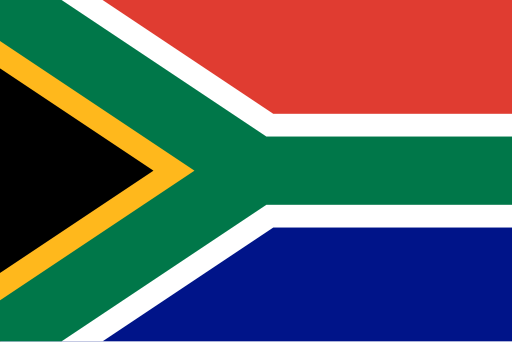South Africa Does Not Allow Heritable Human Genome Editing

Flag of South Africa; design by Frederick Brownell,
image by WikimediaCommons users.
Public domain, via Wikimedia Commons
What is the legal status of heritable human genome editing (HHGE)? In 2020, a comprehensive policy analysis by Baylis, Darnovsky, Hasson, and Krahn documented that more than 70 countries and an international treaty prohibit it, and that no country explicitly permits it. Policies in some countries were non-existent, ambiguous, or subject to possible amendment, but the general rule remained, even after one rogue Chinese scientist claimed to have modified three embryos and brought them to term; he went to jail.
It was therefore surprising to encounter the suggestion that recent revisions to the South African Ethics in Health Research Guidelines now permit HHGE. In September 2024, at a conference in Pretoria attended virtually by CGS Associate Director Katie Hasson, an audience member contradicted her summary of the global policy situation, saying that it was no longer true that no nation had legalized HHGE.
This radical interpretation of South Africa’s policies has been championed by a small group of academics, notably including Donrich Thaldar, a professor of law at the University of KwaZulu-Natal, Durban. Thaldar welcomed the approach of the routine 2024 update of the South African Ethics in Health Research Guidelines with a 2023 article titled “A golden opportunity for South Africa to legislate on human heritable genome editing;” by legislate on he apparently meant legalize. He has co-authored at least four other papers supporting reproductive use of human genome editing (2020, 2021, 2022, 2024), usually with Marietjie Botes, Bonginkosi Shozi, and Beverley Townsend.
Françoise Baylis and Katie Hasson began to research the amendments to the research ethics guidelines; they found no media coverage of the change and little awareness of the new guidelines among policy experts on human genome editing. In response, they published an article in The Conversation on October 24 titled “South Africa amended its research guidelines to allow for heritable human genome editing.” Their article noted a contradiction between the seemingly permissive stance toward heritable human genome editing in the amended guidelines and a section in the 2004 National Health Act which is interpreted as prohibiting HHGE. Raising questions they described as alarmist but important, they cited the World Health Organization’s report on Human Genome Editing (co-authored by Baylis), and the three International Summits, all of which concluded that, at a minimum, HHGE was not nearly ripe to proceed. They also mentioned the possibility of “scientific tourism with labs moving to South Africa to take advantage of permissive research guidelines and laws.”
Sarah Wild, a journalist raised in South Africa but living in the UK, noticed the piece and wrote one for Nature that raised its profile. Most significantly, her publication apparently provoked a definitive statement from the Chairperson of the National Health Research Ethics Council, Professor Penelope Engel-Hills. This has not, to my knowledge, been formally published but has been circulated. It explains in great detail that:
neither the National Health Act, nor the 2024 National Guidelines on Ethics in Health Research, legalise HHGE for use in therapy in any way. The prohibition in the National Health Act makes this position very clear.
GeneOnline News recognized that “the global scientific community agrees: the risks outweigh the reward.” The Daily Maverick reported the statement from Engel-Hills, and quoted Baylis and Hasson calling it “very helpful.” The newspaper’s headline was:
Ethics changes notwithstanding, creating genetically modified babies is still illegal in SA
Gradually, others weighed in. Juta Medical Brief confirmed that “Despite ethics changes, GM babies still illegal in SA.” Dr. Anye Nyamnjoh of EthicsLab at the University of Cape Town criticized as “Ethics Washing” Shozi and Thaldar’s misappropriation of Ubuntu, “an African philosophy centered on communal harmony,” to promote HHGE. Professor Jantina de Vries, the Director of EthicsLab and Professor of Medicine at the University of Cape Town, raised concerns that the advocates for HHGE “may be constructing a narrative and evidence base that could support future legal challenges.” She urged further dialog and clarification to “ensure that the conversation around HHGE is grounded in care, justice, and the collective good.”
The online Conversation allows comments. Thaldar responded, as in return did Baylis, Hasson, and I. So did Phila M. Msimang, a South African academic, who wrote persuasively:
What this article and the comments have made apparent to me is that I/we have the responsibility—an ethical obligation—to challenge the misleading claims being made by Thaldar and colleagues.



